
Written by Maia, President & Founder
We all grew up hearing that we should “eat more fruits and veggies.” Now, as parents, we often go to great lengths to get a “rainbow of color” into our kids’ diets.
Most of us struggle with this—when it comes to vegetables, my kids will only consistently eat broccoli and asparagus, so it’s hardly a rainbow!
As many of you know, there is a dark side to fruits and vegetables.
Conventionally grown produce is often laden with agricultural chemicals. This includes toxic pesticides that the government has yet to ban, despite incredibly strong scientific evidence of harm to human health.
(For more on this, check out “Poison Fruit,” Sharon Lerner’s recent article about Dow Chemical’s efforts to prevent the government from banning chlorpyrifos, a widely used pesticide linked to autism and other neurodevelopmental disorders. Warning: Don’t read before bedtime—you may be too angry and scared to sleep!)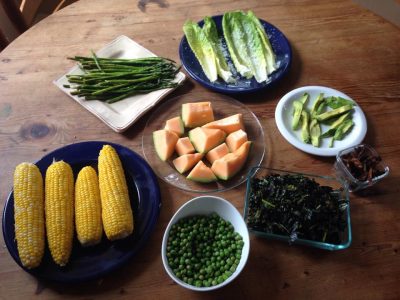
The good news is that there are simple (and affordable!) steps you can take to reduce the pesticides in your diet.
How to Reduce Pesticides in Your Family’s Diet
1. Buy organic produce—where it counts.
I know, I know…organic produce is often more expensive—like, much more expensive—than conventionally grown fruits and vegetables.
I don’t recommend that you blow your monthly budget on organic fruits and vegetables. Instead, spend your fruit and veggie dollars strategically by using the Environmental Working Group’s Dirty Dozen and Clean 15 lists.
Buy Organic to Reduce Pesticides
EWG’s 2016 Dirty Dozen List
StrawberriesApplesPeaches
NectarinesCelery
Grapes
CherriesSpinachTomatoesSweet bell peppersCherry tomatoesCucumbers
These lists guide you to buy organic versions of the fruits and vegetables that tend to have the highest levels of pesticides, and buy conventional versions of the cleaner ones.
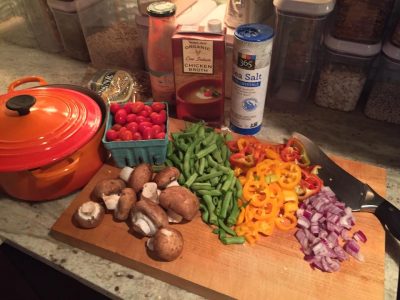
These changes matter. Switching to more organic produce has a positive effect on pesticide levels in the body, and this effect happens in a matter of days, according to research by Chensheng Lu and colleagues.
2. Wash produce wisely to reduce pesticides.
My clients ask me all the time how they can wash fruit to reduce pesticides in their kids’ diets.
Short answer: you can’t simply wash (or peel) away pesticides, but simple washing methods still matter.
The Environmental Working Group (EWG) says that washing produce is not the best way to reduce pesticide exposure. Their pesticide risk rankings are based on tests of fruits and vegetables “as eaten,” or washed and peeled as appropriate for the specific type of produce. The EWG says that pesticides can be in the whole fruit, not just on the outside.
That said, you should still wash produce before eating it. Here are some tips:
- Use cold, running water (soaking or dunking just re-exposes produce to the stuff you’re trying to wash away).
- Scrub the surface of root vegetables and other firm-skinned produce.
- Dry with a clean cloth.
- Peel when appropriate, and remove the outer leaves of leafy produce.
What about fruit and veggie washes and DIY tricks like soaking produce in a vinegar solution to reduce pesticides?
I don’t generally think it’s worth the extra expense or effort. Store-bought produce washes often have sketchy ingredients, although this one is safe.
As for vinegar as a way to reduce pesticides, it has to be used in a pretty high concentration (like 1 part vinegar to 3 parts water) to kill some microbes, and I couldn’t find compelling evidence that it reduces pesticide levels better than washing with water alone.
Unless you are dealing with a compromised immune system, the tips I offer above are the easiest and most effective ways to get your produce clean.
3. Filter your water.
Because agricultural chemicals have been so widely used for many decades, they are present in our environment, including our drinking water. This is one of the many reasons that I recommend that people use a comprehensive water filter in their homes.
4. Lose shoes at the door.
You’ve probably heard me say this before, but one of the simplest things you can do to decrease the toxic load in your house (and keep it a little cleaner!) is to make sure that everyone removes their shoes at the door.
Otherwise, you’re tracking in all kinds of gross stuff, including chemicals used in gardens, farms, lawns and parks; animal feces; lead-contaminated dust; etc.
If you have dogs or other indoor-outdoor animals, wipe down their paws at the door.
These habits are especially important if you have rugs and carpets (toxins can linger in the fibers for years, even if you clean diligently) and if you have young children who spend a lot of time on the floor.
Stay sane,

If you liked this post, sign up for our newsletter to be alerted when we publish new content like this!

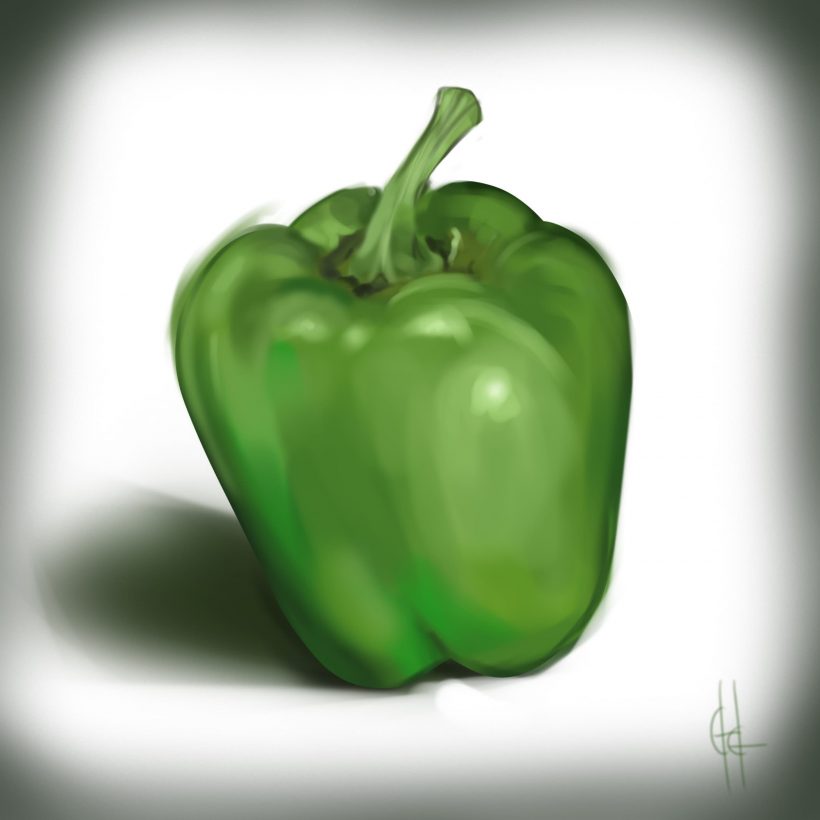
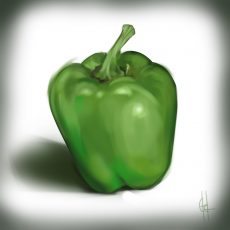
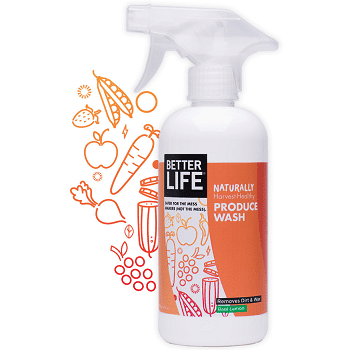






John says
I read “Poison Fruit” and was outraged! People are completely “unconscious” about all these “nouveau illnesses”. They can’t fathom that there is a major link between chemical exposures from food and environment and illnesses such as autism, ADD, ADHD, etc. Nonetheless, these are essentially forms of chemical injuries. These illnesses can be prevented with stricter laws. However, that won’t happen esp. under this administration. Doctors are diagnosing kids with asthma in one room while Lysol, Febreze and toxic plug-ins are all over their waiting rooms and in their restrooms. The kids leave with inhalers while they pass through the toxic fog. What a disconnect! I think we all have to make little changes everyday to protect ourselves inasmuch as possible. We need more “Mom Warriors” who will speak out against this travesty. Thanks again for all your work, Maia.
Yasha says
I refer your blog all the time. Love it. Such a great resource.
I was wondering though, regarding organic produce, having read that there are loopholes in how organic food is labeled “organic”, is it all that safe or just lesser evil. What about fruits like apples, polished with wax we can’t rid off easily unless we use hot water or peel it?
maia says
Unfortunately, I think organic produce from huge farms is probably the lesser of two evils:(
Beth Bishop says
She says the worst thing about the no-kill movement is that it blames shelters for euthanasia, rather than people who neglect, abandon or fail to sterilize their animals.
Anna Cesnjevar says
A recent study released last month has shown a high correlation between unborn children whose mothers live near farms that use non-organic pesticides and autism.Even if you have just picked them up from your garden. It is of utmost importance to thoroughly rinse the produce and to make sure there is no dust, dirt or chemical residue found.
geet says
Hello! i really liked your post. Please share some more
Molly Paulson says
Another helpful piece of information that you might want to include:
https://www.consumerreports.org/pesticides-herbicides/easy-way-to-remove-pesticides/
Maia James says
Thanks for sharing, Molly!